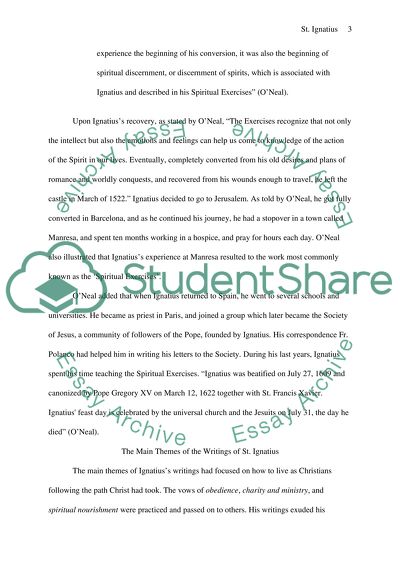Cite this document
(“The Life of St. Ignatius of Loyola Book Report/Review”, n.d.)
Retrieved from https://studentshare.org/religion-and-theology/1533968-the-life-of-st-ignatius-of-loyola
Retrieved from https://studentshare.org/religion-and-theology/1533968-the-life-of-st-ignatius-of-loyola
(The Life of St. Ignatius of Loyola Book Report/Review)
https://studentshare.org/religion-and-theology/1533968-the-life-of-st-ignatius-of-loyola.
https://studentshare.org/religion-and-theology/1533968-the-life-of-st-ignatius-of-loyola.
“The Life of St. Ignatius of Loyola Book Report/Review”, n.d. https://studentshare.org/religion-and-theology/1533968-the-life-of-st-ignatius-of-loyola.


